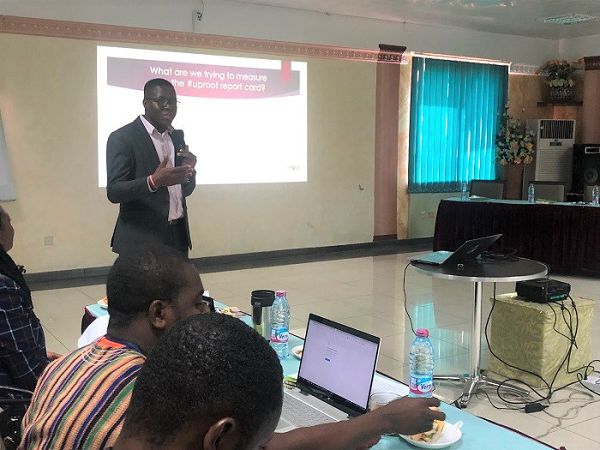
PPAG calls for more engagement on Sexual and Reproductive Rights
Despite the existence of polices, strategies, guidelines and plans on Sexual and Reproductive Health and Rights (SRHR) in the country, Ghana still needs the broad engagement of stakeholders and active participation of youth in order to raise awareness and build an informed and effective advocacy.
The prioritisation of comprehensive SRHR education is to ensure that national policy frameworks recognise and capture the unique perspectives, knowledge and experiences of the youth that will lead to meaningful dialogues and solutions-based policies.
Advertisement
This was contained in the findings of a youth score card exercise conducted mainly by young advocates, peer educators and researchers with technical support provided by the Planned Parenthood Association of Ghana (PPAG) and The Joint United Nations Programme on HIV and AIDS (UNAIDS).
The exercise which seeks to assess the extent of achievement and commitments on the UN political declaration on HIV and AIDS brought to the fore critical gaps regarding implementation of laws and policies for young people and their participation in decision making processes and discourses on HIV/AIDS as well as advocacy interventions with key stakeholders, policy makers and law enforcement agencies.
The one-day interactive stakeholders' workshop held in Accra last Thursday was to present findings of the score card which forms part of a youth-led advocacy campaign dubbed #Uproot. The focus of the campaign is to challenge harmful legal and policy barriers that deter young people from accessing services, supporting youth participation in the HIV response and strengthening innovative partnerships between networks of young people.
The campaign aims to create a conducive atmosphere that encourages and supports the active involvement and leadership of young people, particularly women, to help to develop specific measures that will help reduce the risk of HIV infection among adolescent girls and young women by providing them with quality information and education, mentoring, social protection and social services.
Presenting the results of the score card exercise, Joshua Akharigeya Atabinore, an advocacy officer of PPAG said although there was lack of enough youth participation in the decision-making space, considerable gains were made in the partnerships and leaderships scores.
He explained that a score of over 90% in partnership and leadership was indicative of youth organisations being empowered to take up leadership roles in the national HIV response while creating and strengthening strategic partnerships with other youth organizations, civil society organizations, the private sector, government authorities and the academia paving a way for the achievement of commitments agreed in the 2016 Political Declaration on HIV/AIDS.
Mr Atabinore encouraged stakeholders to develop and implement sustainability strategies for the progress made so far and ensure that laws and policies are not posing obstacles to young people's access to HIV and other sexual and reproductive health services.
Discussants at the meeting believe that comprehensive sexual education remains a critical component of the #Uproot campaign and bemoaned the unregulated proliferation of inaccurate sexual and reproductive health information especially on social media which may have dire consequences if not properly addressed.
They again stressed on the seeming lack of trust in the healthcare delivery system on issues bothering on abortion and contraceptive services and inadequate safe and supportive environment that ensures access to appropriate information which includes counselling on mental health, nutrition, sexual and reproductive health which are a major challenge that must be tackled if gains made so far are to be consolidated.
Mr Ishmael Kwesi Selassie, who spoke on behalf of Madam Margaret Owusu-Amoako,the consultant engaged to review the general laws and policies on young people, said the outcome of the review was expected to serve as an evidence-based reference to advance advocacy efforts and ensuring that laws and policies that impede young peoples’ access to SRHR including HIV are amended.
He outlined key points and gaps identified from the review that would be useful in engaging policy makers especially members of parliament in order to press for a change in the issues that were identified.
The list of documents reviewed included but not limited to Ghana Shared Growth and Development Agenda II: 2014-2017 (NDPC 2014), Adolescent Reproductive Health Policy, 2000, Sexual and Reproductive Health Policy for young people (2016 to 2034), Ghana, The National Youth Policy, 2010, The Reproductive Health Service Policy and Standard. Others are The National Condom and Lubricant Strategy, The Ghana Demographic Health Survey (2014), The HIV Sentinel Surveillance Report 2017, NACP, The Ghana AIDS Commission Act 2016, The National HIV/AIDS Strategic Plan 2016-2020, National HIV/AIDs & STI Policy, 2013.
Mr Selassie said the results of the review will form part of an advocacy plan that would aim at various youth-led advocacy activities to be carried out at different levels targeting different stakeholders including health service providers, Civil Society Organisations and the media.
According to him, although Government of Ghana has committed and is a signatory of several international and national initiatives that recognise the right to health, the national youth Policy should be broadened beyond its current scope to include strategic directions to promote, prevent, and manage the health and development of Ghanaian adolescents.
Consequently, he said, a proposal has been submitted for youth led advocacy campaign to dialogue with stakeholders and policy makers at national and regional levels of the country to review, and hopefully reform where necessary, the laws and policies posing barriers for young people to access these services.
These dialogues will help the key policy makers to understand what the issues are creating an enabling policy environment for all young people to exercise their sexual and reproductive health and rights without any forms of discrimination or marginalization, he added.



